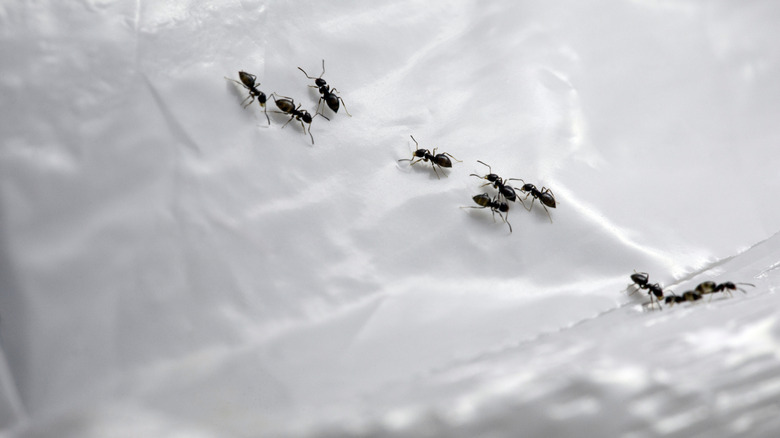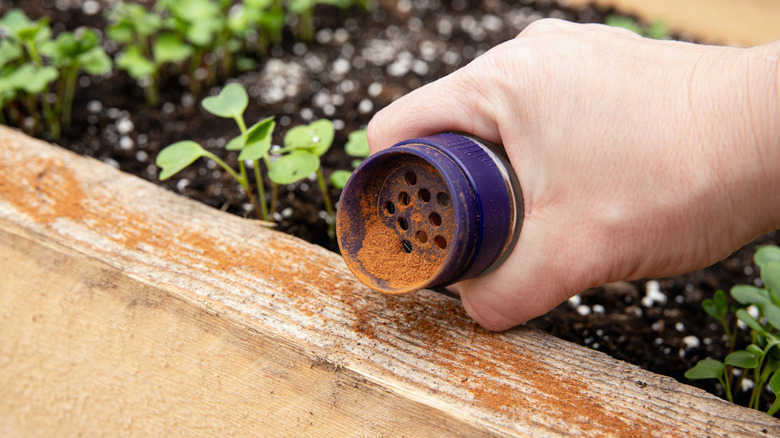Why Do People Use Cornstarch To Keep Ants Away (And Does It Really Work)?
Cornstarch is a popular baking ingredient often used in sauces or stews, but some people are using it in their home or garden as an all-natural way to keep ants away. Whether or not this method of repelling ants is effective remains unclear due to limited research from pest control experts. Alternative ant repellents might be better for protecting your plants, and if you decide to use cornstarch, it's best as part of a strategy against the pesky visitors.
Ants may seem small and thus insignificant, but their actions can cause heavy damage to your home and your plants. When inside, the resourceful creatures may damage your electrical wiring, chew up drywall, and even eat insulation. Some ants dig complex tunnel systems underground, with various compartments for housing and food. During the digging process, they can disrupt plant roots and shift the soil underneath. Your plants may suffer from dehydration as a result of the reduced access to nutrients and moisture. Worst of all, some ant species work together with aphids, helping them evade beneficial insects such as ladybugs. They feed on aphids' excretions of a sugary substance known as honeydew, which originates from the plant sap the insects eat. If you've ever been at war with aphids in your garden, then you know how destructive they can be, and this symbiotic relationship doesn't help, because instead of one pest infesting your plants, you have two! Here's what we know about using cornstarch to repel ants and whether it's worth trying.
Why some people use cornstarch in the garden plus alternatives
Ants navigate by smell, following powerful pheromones (scent chemicals) left by others and using their antennae's sensors to find their way. Some believe a natural way to get rid of ants without poison is using cornstarch, which is supposed to obscure the pheromone trails, confusing the pests. It's like you've ripped out their MapQuest map, and they're clueless on where to go next. Yet the research on the effectiveness is somewhat lacking. However, there is anecdotal evidence that suggests cornstarch can be useful in the fight against ants, and since it's a natural and inexpensive ingredient, there's no real harm in trying it. Either sprinkle cornstarch on the ground as a scent barrier or pour cornstarch directly on top of the ants and follow it with a light spray of water. When combined, the cornstarch and liquid will become dense enough to kill the ants. You can also vacuum up ants and then vacuum up a small amount of cornstarch directly afterwards to ensure they die inside the vacuum bag.
Bottom line, you may be best to keep the cornstarch for your baked goods and recipes and pick up an alternative deterrent that's more reliable, like peppermint oil. This is an essential oil that will banish ants from your home for at least a week. Combine a few drops of the oil with water and a carrier oil in a spray bottle, and mist the mixture anywhere you suspect ants to be visiting. To keep them away from your plants, try sprinkling cayenne pepper or cinnamon, being sure to reapply as needed.

